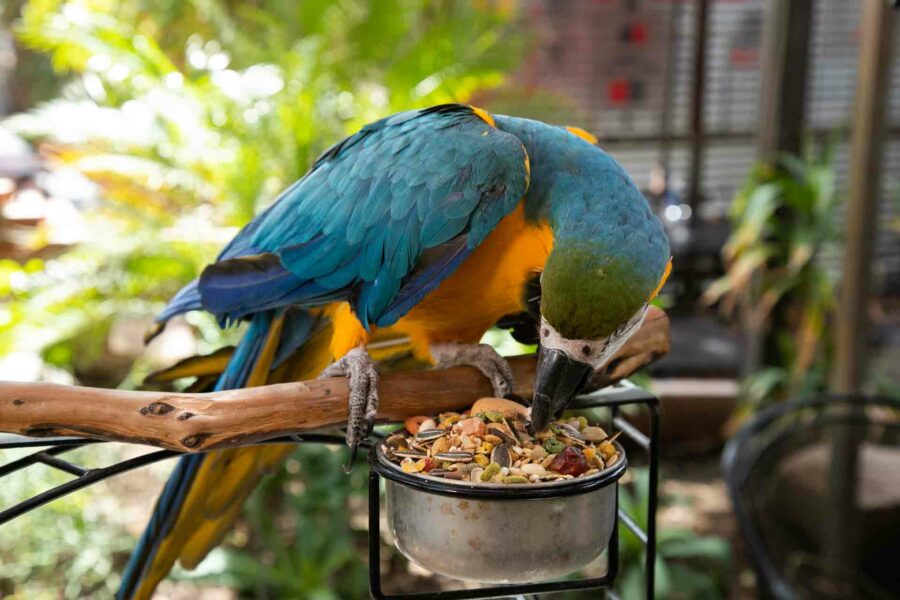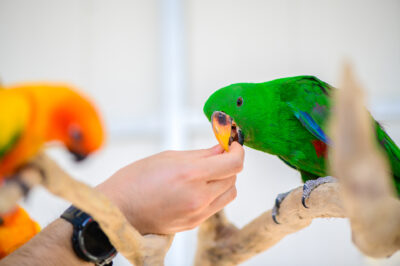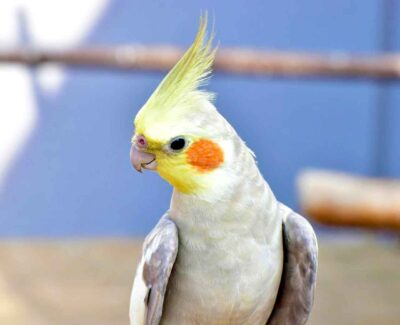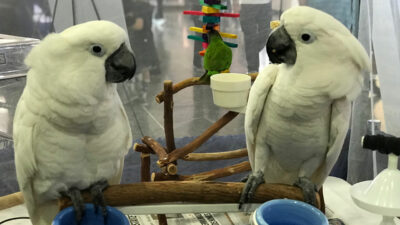
Weight Management for Parrots: A Vital Aspect of Avian Health
Just as with humans, maintaining a healthy weight is crucial for parrots and other birds. Regularly monitoring your bird’s weight can help detect early signs of illness and prevent obesity-related health issues. To assist with this process, our friends at the Hagen Avicultural Research Institute (HARI) have compiled the following overview discussing why it’s important to weigh your bird regularly, how to do it effectively, and what steps to take if you notice significant weight changes.
Why Weighing Your Bird is Important
Regular weight monitoring is essential because birds often hide their illnesses. A noticeable drop in weight can be one of the first indicators that your bird is unwell. Conversely, a diet that’s too rich for your bird’s lifestyle may lead to weight gain, which poses significant health risks—obesity in parrots can affect their cardiovascular and respiratory systems and ultimately shorten their lifespan.
By keeping track of your bird’s weight on a weekly basis, you can maintain a detailed record that is invaluable for managing your pet’s health. This practice is not difficult, especially if your bird is accustomed to “stepping up!”
How to Weigh Your Bird
To weigh your parrot, you’ll need a scale that can read in grams. While there are specialized scales for parrots, a kitchen scale with the ability to switch between ounces and grams can also work. It will also be helpful to have a T-perch with a flat base that can be set on the scale; some avian specialty stores supply these perches.
Once you’ve assembled these supplies, set the scale to grams and place the T-perch on it. Then, encourage your bird to step up onto the perch. You’ll also want to maintain a chart to record your bird’s weight regularly—HARI provides one available for download!
Interpreting Weight Changes
If you notice that your parrot is losing more than 10% of their average weight, they might be masking an illness and should see an avian veterinarian. Keeping a weight record will help the vet identify any fluctuations in weight patterns and diagnose potential issues.
On the other hand, if your parrot gains more than 10% of their average weight, a diet adjustment and/or strategy for burning off extra calories may be necessary.
What to Do If You Notice Significant Weight Changes
While noticing that your parrot has suddenly lost a significant amount of weight can be alarming, here are a few steps to help you get to the bottom of the issue:
Review your bird’s food intake
Is your bird eating their food? If you’re unsure, keeping an eye on their stool volume can be helpful—if the volume is gradually getting smaller and smaller, your bird may be starving. Encourage the bird to nibble on their favorite treat, and check to make sure that their food is fresh.
Ensure that you’re providing the right diet
Make sure the diet you’re providing is suitable for your bird’s species and life stage. For instance, a parakeet diet might not be sufficient for a cockatiel or a small parrot. If your bird is young and recently weaned, make sure they’re eating enough on their own. Assisted hand feeding may be required in some cases; consult with your avian vet or breeder for instructions.
Watch for behavioral changes
Note any decline in motor skills or changes in attitude or behavior, as these could be signs of illness.
If your bird’s weight loss is gradual but noteworthy, it could be due to various causes, including illness. Along with the solutions for sudden weight loss, consider that your bird might be fighting a disease, so a visit to the avian vet is essential. The vet can conduct tests to determine if your bird is ill and recommend treatments.
Additionally, senior or geriatric parrots often require less food as they age due to decreased activity levels. They may naturally adjust their food intake, but guidance from an avian vet is advisable.
Regular weight monitoring is a simple yet powerful tool in ensuring your parrot’s health and longevity. By keeping a detailed record and being vigilant about any changes, you can catch potential health issues early and provide the best possible care for your feathered friend. Need to find an avian vet in your area? Check out our locator tool!
About HARI
The Hagen Avicultural Research Institute (HARI), founded in 1985 by psittacine aviculturist Mark Hagen, has made significant strides in the study of captive breeding and maintenance of companion birds. This has paved the way for remarkable progress in bird husbandry, nutrition, and life cycle health.





